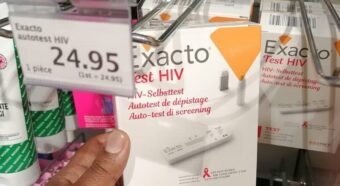For a better integration of health system strengthening in funding requests
- May 6, 2020
- Non classé
- By Armelle Nyobe

This initiative is in line with the strategic recommendations of the Technical Review Panel which state that it is crucial to (i) strengthen cross-cutting programming for Resilient and Sustainable Systems for Health (RSSH); (ii) strengthen integrated programme design, funding requests and implementation through funding and review processes; and (iii) ensure capacity building in Resilient and Sustainable Systems for Health (RSSH) and country dialogue processes, in particular through Health Sector Coordinating Committees.
The participatory and practical workshop brought together participants among all country dialogue stakeholders. Indeed, in order to build real dialogue at the country level, representatives came either from the Ministry of Health (General Manager, Secretary General, Director of Planning), the CCM (Chair of the Concept Note Development Committee), the Ministry of Finance (or the Finance Department of the Ministry of Health, the Reproductive Health Programme; they all had the opportunity for the first time to take part to a dialogue that does not often take place in countries. According to Benjamin Loevinsohn, senior coordinator of the RSSH component at the global fund, it was important to participate in this activity which is the first of its kind to discuss RSSH activities at the regional level. He believes that this approach is important to ensure that funding requests for the NFM3 are more systematic and consistent compared with those of the NFM2. Lastly, he deems that it will be interesting to see at the end of the work what priorities have been retained by the countries for the next funding requests.
The participants were presented with updates on the following modules: Community health and human resources for health in WCA, health financing and supply chain in WCA, which are priorities in the strengthening of RSSH. Group work per country based on the state of play of the different pillars in their respective countries allowed participants to reflect on the situation in their countries in order to identify priority needs and areas of work. The exercise resulted in interesting exchanges and mutual sharing of knowledge, particularly with the experience of Sierra Leone, which, due to Ebola, strengthened its health system in most RSSH modules. Prof. Pascal Niamba, Global Fund Board Member for West and Central Africa commends this initiative which, in his opinion, should serve as a basis for dialogue in all countries and believes that such an inclusive dialogue helps to carry out a holistic diagnosis of what is being implemented.
At the end of the 3-day workshop, the participants left with a road map of the priorities they wish to discuss during country dialogue, and made a commitment to in turn facilitate these discussions on health system priorities and possible options to maximize the impact of Global Fund investments (provision of activities in integrated screening and care packages, public-private partnerships in the deployment of the supply chain to the last mile, formalization of the profiles of community health workers and definition of the integrated content of their activities).
Not to stop there, it is planned that the initiative “Investing in Health Systems: a key leverage to increase the impact of Grants in West and Central Africa” will move to Abidjan, Cote d’Ivoire to support Francophone countries of the 2nd and 3rd windows.


